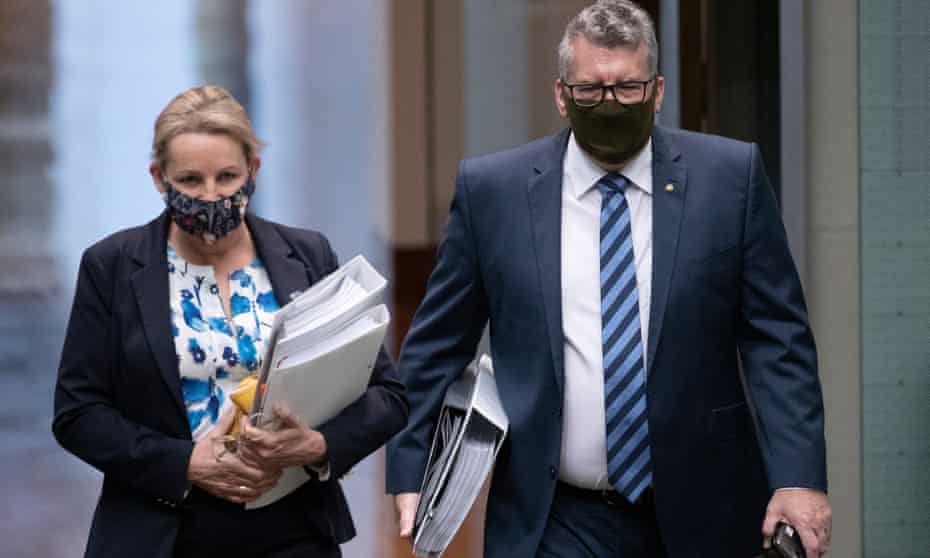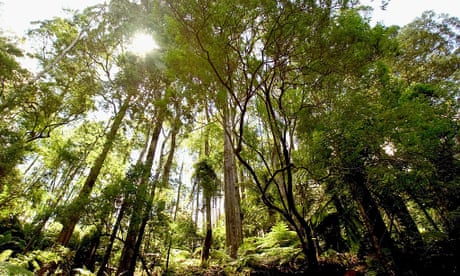Extract from The Guardian
Conservationists warn using workaround to speed up decisions will lead to worse outcomes.

Sussan Ley and Keith Pitt say 10 new regional plans will ‘streamline development approvals’ under Australia’s environment law.
Guardian Australia revealed last month that the government was considering using a little known section of the Environment Protection and Biodiversity Conservation Act to allow some developments to be given the green light as part of a regional plan without consideration of the impact of the project itself.
In a joint statement released on Monday night, the federal environment minister, Sussan Ley, and the resources minister, Keith Pitt, said the March budget would include $62.3m to establish these plans in up to 10 priority areas, emphasising it could speed up approval for mining developments.

“The 10 new regional plans will streamline development approvals, including those for crucial resources projects, by removing the need for a project-by-project approval under national environment law,” Pitt said in the statement.
The ministers did not say which areas the regional plans would cover.
The decision depends on parts of the EPBC Act that gives only a vague definition of a regional plan as covering a broad range of biodiversity, social and economic factors, and grants the environment minister the power to declare some development activities exempt from needing federal approval where those projects are covered by plan. Regional plans have previously been used only in marine areas.
Documents obtained last month by Guardian Australia under freedom of information laws showed the government was exploring whether it could use the act bypass the need for individual projects to seek federal environmental approval.
It was proposed as an alternative to the government passing new laws to transfer more environmental decision-making powers from the commonwealth to state and territory governments. Legislation to allow that change has been blocked by the Senate since last year.
Ley and Pitt said an $128.5m package to “advance environmental law reform” would be included in the budget. In addition to support for regional plans, it would include $37.9m for “streamlining of assessment processes”, $12m to “modernise the environmental offsets policy” and $9.5m to improve compliance with the law.
Ley’s office could not provide details on what the modernising of environmental offsets policy would entail but is likely to be initially be used for a review. Guardian Australia has reported extensively on flaws in offset schemes, including offset commitments that were never delivered and problems with the federal government’s offset for the development western Sydney airport.

She said it represented “another important step in delivering much needed environmental reform that reduces unnecessary delay and duplication, while strengthening safeguards”.
A review of the EPBC Act led by the former competition watchdog head Graeme Samuel last year found the environment was suffering from two decades of failure by governments to improve protection and called for an overhaul of Australia’s conservation laws to address a “trajectory of environmental decline”.
The Coalition is yet to formally respond to his review. Its attempt to introduce legislation that would allow states and territories to take more responsibility for environmental decisions failed to gain parliamentary support in part because the government did not adopt a recommendation by Samuel for a set of new national environmental standards against which developments should be tested.
The Senate rejected a weaker set of standards proposed by the government.
Alexia Wellbelove, a campaign manager at Humane Society International, said without the introduction of strong national standards the government’s new regional plans policy were unlikely to benefit the environment.
“In fact, they may do the reverse,” she said. “Speeding up decisions on environmental approvals and putting a focus on facilitating development is putting our heads in the sand on the extinction crisis.”
Wellbelove said substantial additional funding should be directed to helping a growing list of national threatened species.
“This package does nothing to address the crisis they face,” she said. “The funding is solely about speeding up decisions that will impact the environment when instead we should be directing this funding towards recovering threatened species and their habitats.”
No comments:
Post a Comment